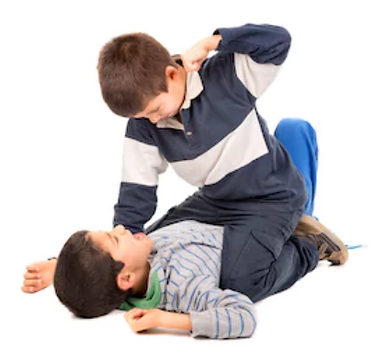CONDUCT DISORDER
What is Conduct Disorder?
Conduct Disorder (CD) is an emotional and behavioural state that leads children and young people to act in a way that is disruptive and violent, and not follow the rules.
Conduct disorder represents a group of behavioural problems where a child is aggressive, antisocial and defiant to a much greater degree than expected for your child's age.

Onset
The DSM - (Diagnostic and Statistical Manual of Mental Disorders - 5th Edition) notes that Conduct Disorder can appear as early as the preschool years, with ODD (Oppositional Defiant Disorder) a common premorbid condition, it may progress to Conduct Disorder. Middle childhood to middle adolescence is the time frame where Conduct Disorder symptoms are most apparent, and come to parental/ educational/ clinical attention. Rejection by more prosocial peers and association with delinquent peers with reinforcement of conduct disordered behaviours may occur
(American Psychiatric Association, 2013).
Prevalence
It has been shown that 5% of all children between ages five and sixteen years old are diagnosed with Conduct disorder, more commonly in boys than in girls. The proportion of children with conduct disorders increases with age, for example, 7% of boys and 3% of girls aged five to 10 years have conduct disorders; in children aged 11 to 16 years, the proportion rises to 8% of boys and 5% of girls.
Characteristics of Conduct Disorder include:
-
Fighting and physical cruelty
-
Destructiveness
-
Lying and stealing
-
Truancy and running away from home
Core Symptoms of Conduct Disorder are grouped into four areas:
-
Aggression to people and animals
-
Destruction of property
-
Deceitfulness, lying or stealing
-
Serious violations of rules
What causes Conduct Disorder?
There is no single cause, however multi-factors can interact and explain the child’s disruptive behaviours including:
-
Individual factor
-
Genetic factor
-
Physical factor such as brain damage
-
Environmental such as family social adverse circumstance
How CMC CAMHS - Dubai can help with Child Conduct Disorder
Treatment depends on the type, nature and severity of symptoms your child has.
Possible treatments for intervention include:
-
Cognitive Behaviour Therapy (CBT)
-
Behaviour Therapy
-
Individual Psychotherapy
-
Family Therapy
-
Medication for associated symptoms such as depression or ADHD
Cambridge Medical Centre (CMC) Child & Adolescent Mental Health information publications Copyright 2018.
Read more:
Behavioural Problems and Conduct Disorder: information for parents, carers and anyone who works with young people
© Royal College of Psychiatrists March 2017
How do I know my Child is Having Conduct Disorder?
To confirm the diagnosis of conduct disorder, it is usually attained by a professional from the CAMHS Team, however your child might display some of the features of conduct disorder. The diagnosis of conduct disorder is very likely if your child has shown at least one of the characteristics shown in the last six months, and at least three of the core symptoms over the past year.

